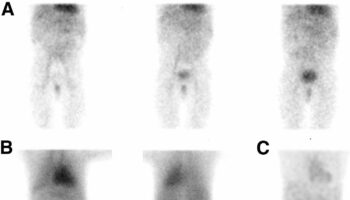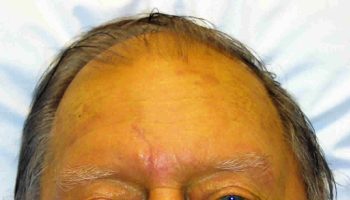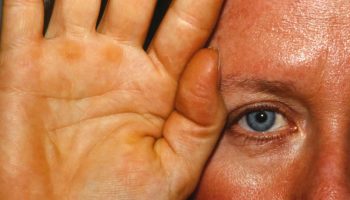Contents
What is nitroglycerin
Nitroglycerin is also called glyceryl trinitrate, is used to prevent attacks of chest pain (angina) caused by coronary artery disease (narrowing of the blood vessels that supply blood to the heart). Nitroglycerin is also used to relieve an angina attack that is already occurring. Nitroglycerin is also sometimes used to control or lower the blood pressure during some surgical procedures.
Nitroglycerin belongs to the group of medicines called nitrates. Nitroglycerin works by relaxing the muscles surrounding blood vessels (arteries and veins) and so helps more blood and oxygen reach the heart while reducing its work load. When used regularly on a long-term basis, or just before exercise or a stressful event, sublingual nitroglycerin helps prevent angina attacks from occurring.
Nitroglycerin is available only with your doctor’s prescription. Nitroglycerin is not recommended for use in children, as there is not enough information on its effects in children.
Nitroglycerin is available in the following dosage forms:
- Spray
- Tablet
- Capsule, Extended Release
- Packet
Nitroglycerin sublingual tablets are used to treat episodes of angina (chest pain) in people who have coronary artery disease. Nitroglycerin sublingual tablet is also used just before activities that may cause episodes of angina in order to prevent the angina from occurring.
Nitroglycerin administration
Nitroglycerin is most commonly administered as a tablet that is absorbed sublingually. It is given in hospitals as well as prescribed for outpatient use. Patients may be prescribed nitroglycerin to take as prophylaxis for anginal chest pain prior to an event that may provoke anginal symptoms. They must be instructed to allow the nitroglycerin to dissolve in their mouth and allow their oral mucosa to absorb the drug. There currently are three doses available: 0.3 mg, 0.4 mg, and 0.6 mg. The dose may be repeated every 5 minutes until relief is achieved. If anginal pain persists after three doses, prompt medical attention is required. After administration, the onset of vasodilatory effects occurs within 1 to 3 minutes, with a max effect occurring within 5 minutes. Nitroglycerin is primarily eliminated via metabolism in the liver and has a mean half-life of approximately 2 to 3 minutes.
There are intravenous (IV) routes of administration for nitroglycerin used most commonly in emergency rooms and intensive care units (ICU). It is administered as a 5% dextrose in water drip and is indicated when sublingual nitroglycerin has failed to provide symptomatic relief or if rapid and continued relief of symptoms is necessary. The drip is frequently used to treat acute coronary syndromes, hypertensive emergency, and acute congestive heart failure (CHF) exacerbations. When administered, its effect is very tightly monitored and discussed below.
Transdermal methods of nitroglycerin administration are also commonly administered in emergency rooms during acute angina attacks. It is a 2% ointment that is applied directly on to the patient’s skin and allowed to absorb. It is typically used for patients that cannot tolerate the sublingual administration of nitroglycerin or have a previous adverse reaction to the sublingual tablet. Absorption takes about 5 to 10 minutes for full effect. Ideal application is on a surface with minimal amounts of hair as it can inhibit absorption, and care must also be taken to not apply repeatedly to the same area if multiple doses are required. Repeated application of the ointment to the same area can cause skin irritation and dermatitis. Transdermal patches are also available at varying doses per hour (0.1 mg, 0.2 mg, 0.4 mg, and 0.6 mg), but these are rarely used and reserved for angina prophylaxis only. Similar application precautions as the ointment should be taken with the patches.
How should nitroglycerin be used?
Nitroglycerin comes as a sublingual tablet to take under the tongue. The tablets is usually taken as needed, either 5 to 10 minutes before activities that may cause attacks of angina or at the first sign of an attack. Follow the directions on your prescription label carefully, and ask your doctor or pharmacist to explain any part you do not understand. Take nitroglycerin exactly as directed. Do not take more or less of it or take it more often than prescribed by your doctor.
Nitroglycerin may not work as well after you have used it for some time or if you have taken many doses. Take the fewest tablets needed to relieve the chest pain (angina) of your attacks. If your angina attacks happen more often, last longer, or become more severe at any time during your treatment, see your doctor.
Talk to your doctor about how to use nitroglycerin tablets to treat angina attacks. Your doctor will probably tell you to sit down and take one dose of nitroglycerin when an attack begins. If your symptoms do not improve very much or if they worsen after you take this dose you may be told to call for emergency medical help right away. If your symptoms do not go away completely after you take the first dose, your doctor may tell you to take a second dose after 5 minutes have passed and a third dose 5 minutes after the second dose. Call for emergency medical help right away if your chest pain has not gone away completely 5 minutes after you take the third dose.
Do not chew, crush, or swallow nitroglycerin sublingual tablets. Instead, place the tablet under your tongue or between your cheek and gum and wait for it to dissolve. You may feel burning or tingling in your mouth as the tablet dissolves. This is normal but is not a sign that the tablet is working. Do not be concerned that the tablet is not working if you do not feel the burning or tingling.
Nitroglycerin mechanism of action
Nitroglycerin is converted into nitric oxide (NO) in smooth muscle and nitric oxide (NO) then activates guanylyl cyclase, which converts guanosine triphosphate (GTP) to guanosine 3′,5′-monophosphate (cGMP) in vascular smooth muscle and other tissues. cGMP then activates many protein kinase-dependent phosphorylations, ultimately resulting in the dephosphorylation of myosin light chains within smooth muscle fibers. This causes the relaxation of smooth muscle within blood vessels, resulting in the desired vasodilatory effect.
The physiologic effect of nitroglycerin is by means of vasodilation (relaxing the blood vessels). Dilatation of the veins results in decreased venous return to the heart, thereby decreasing left ventricular volume (reduced preload) and decreasing myocardial oxygen requirements. Arteriolar relaxation reduces arteriolar resistance (reduced afterload), thereby decreasing myocardial oxygen demands. In addition, nitroglycerin causes coronary artery dilatation, thereby improving myocardial blood distribution.
What is nitroglycerin used for?
Nitroglycerin is a vasodilatory drug that is used to provide relief or prevent attacks of chest pain (angina pectoris) caused by coronary artery disease (narrowing of the blood vessels that supply blood to the heart). Nitroglycerin is also sometimes used to suppress premature labor (tocolysis), treat perioperative hypertension, to produce controlled hypotension during surgical procedures, to treat hypertensive emergencies, to treat congestive heart failure associated with heart attack (myocardial infarction) and as explosives.
Nitroglycerin has been FDA approved since 2000 and nitroglycerin is currently FDA approved for the acute relief of an attack or acute prophylaxis of angina pectoris secondary to coronary artery disease 1. Off-label, non-FDA approved uses include treatment for hypertensive urgency/emergency, coronary artery spasm, angina secondary to cocaine use, congestive heart failure (CHF), and chronic anal fissures 1.
Although nitroglycerin has a vasodilatory effect in both arteries and veins, the profound desired effects caused by nitroglycerin are primarily due to venodilation. Venodilation causes pooling of blood within the venous system, reducing preload to the heart. This causes a decrease in cardiac work, reducing anginal symptoms secondary to demand ischemia. Arterial vasodilation will still occur as well and contribute towards the relief of anginal symptoms, but its effects are not as significant. Vasodilation of the coronary arteries will cause increased blood flow to the heart, increasing perfusion, but this effect remains minimal compared to the effects of venodilation.
Nitroglycerin special precautions
Before taking or using nitroglycerin:
- tell your doctor and pharmacist if you are allergic to nitroglycerin patches, capsules, tablets, ointment, or spray; any other medications; or any of the ingredients in nitroglycerin sublingual tablets. Ask your pharmacist for a list of the ingredients.
- tell your doctor if you are taking riociguat (Adempas) or if you are taking or have recently taken a phosphodiesterase inhibitor (PDE-5) such as avanafil (Stendra), sildenafil (Revatio, Viagra), tadalafil (Adcirca, Cialis), and vardenafil (Levitra, Staxyn). Your doctor may tell you not to take nitroglycerin if you are taking one of these medications.
- tell your doctor and pharmacist what prescription and nonprescription medications, vitamins, nutritional supplements, and herbal products you are taking or plan to take. Be sure to mention any of the following: aspirin; beta blockers such as atenolol (Tenormin), carteolol , labetalol (Trandate, in Normozide, in Trandate HCT), metoprolol (Lopressor, Toprol XL), nadolol (Corgard), propranolol (Hemangeol, Inderal, Innopran), sotalol (Betapace, Sorine), and timolol; calcium channel blockers such as amlodipine, diltiazem (Cardizem, Cartia, Diltzac, others), felodipine (Plendil), isradipine (DynaCirc), nifedipine (Adalat, Afeditab CR, Procardia), and verapamil (Calan, Covera, Verelan, in Tarka); diuretics (water pills); ergot-type medications such as bromocriptine (Cycloset, Parlodel), cabergoline, dihydroergotamine (D.H.E. 45, Migranal), ergoloid mesylates (Hydergine), ergotamine (in Cafergot, in Migergot), and methylergonovine (Methergine) heparin; medications for high blood pressure, heart failure, or an irregular heartbeat. Your doctor may need to change the doses of your medications or monitor you carefully for side effects.
- you should know that nitroglycerin sublingual tablets may not dissolve easily in your mouth if you are taking medications that cause dry mouth such as antihistamines; antidepressants including amitriptyline, amoxapine, clomipramine (Anafranil), desipramine (Norpramin), doxepin (Silenor), imipramine (Tofranil), nortriptyline (Pamelor), protriptyline (Vivactil), and trimipramine (Surmontil); ipratropium (Atrovent); or medications for irritable bowel disease, motion sickness, Parkinson’s disease, ulcers, or urinary problems. If this happens, use an artificial saliva product or chew gum to increase the amount of saliva in your mouth so that the tablet will dissolve.
- tell your doctor if you have recently had a heart attack and if you have anemia (low number of red blood cells) or any condition that causes increased pressure in your skull. Your doctor may tell you not to take nitroglycerin.
- tell your doctor if you think you may be dehydrated and if you have or have ever had heart failure, low blood pressure, or hypertrophic cardiomyopathy (thickening of the heart muscles).
- tell your doctor if you are pregnant, plan to become pregnant, or are breastfeeding. If you become pregnant while taking nitroglycerin, call your doctor.
if you are having surgery, including dental surgery, tell the doctor or dentist that you are taking nitroglycerin.
- ask your doctor about the safe use of alcoholic beverages while you are taking nitroglycerin. Alcohol can make the side effects from nitroglycerin worse.
- you should know that nitroglycerin may cause dizziness, lightheadedness, and fainting when you get up too quickly from a lying position, or at any time, especially if you have been drinking alcoholic beverages. To avoid this problem, get up slowly, resting your feet on the floor for a few minutes before standing up. Take extra precautions to avoid falling during your treatment with nitroglycerin.
- you should know that you may experience headaches during your treatment with nitroglycerin. These headaches may be a sign that the medication is working as it should. Do not try to change the times that you take nitroglycerin in order to avoid headaches because then the medication may not work as well.
- Tell your doctor or pharmacist if you are pregnant or intend to become pregnant. Like most vasodilator medicines, nitroglycerin is not recommended for use during pregnancy. If there is a need to consider nitroglycerin during your pregnancy, your doctor or pharmacist will discuss with you the benefits and risks of using it.
- Tell your doctor or pharmacist if you are breast-feeding or intend to breast-feed. Like most vasodilator medicines, nitroglycerin is not recommended while you are breast-feeding. It is not known if nitroglycerin is excreted into breast-milk.
You should NOT be given nitroglycerin if you have an allergy to nitroglycerin.
Symptoms of an allergic reaction to nitroglycerin may include:
- shortness of breath, wheezing or difficulty breathing
- swelling of the face, lips, tongue or other parts of the body
- rash, itching or hives on the skin.
You should NOT be given nitroglycerin if you have any of the following conditions:
- low blood pressure
- a recent head injury or stroke
- swelling around the heart
- reduced red blood cells and iron stores (anemia) or a lack of oxygen in the blood
- an abnormality of hemoglobin, part of your red blood cells, responsible for carrying oxygen.
Drug Interactions
Tell your doctor or pharmacist if you are taking or using any other medicines, including any that you buy without a prescription from your pharmacy, supermarket or health food shop.
Although certain medicines should not be used together at all, in other cases two different medicines may be used together even if an interaction might occur. In these cases, your doctor may want to change the dose, or other precautions may be necessary. When you are taking nitroglycerin, it is especially important that your healthcare professional know if you are taking any of the medicines listed below. The following interactions have been selected on the basis of their potential significance and are not necessarily all-inclusive.
Using nitroglycerin with any of the following medicines is not recommended. Your doctor may decide not to treat you with nitroglycerin or change some of the other medicines you take.
- Avanafil
- Riociguat
- Viagra® (sildenafil), a medicine for impotence.
- Tadalafil
- Vardenafil
Using nitroglycerin with any of the following medicines is usually not recommended, but may be required in some cases. If both medicines are prescribed together, your doctor may change the dose or how often you use one or both of the medicines.
- Alteplase, Recombinant
Using nitroglycerin with any of the following medicines may cause an increased risk of certain side effects, but using both drugs may be the best treatment for you. If both medicines are prescribed together, your doctor may change the dose or how often you use one or both of the medicines.
- Acetylcysteine
- Aspirin
- Dihydroergotamine
- Pancuronium
Other Interactions
Certain medicines should not be used at or around the time of eating food or eating certain types of food since interactions may occur. Using alcohol or tobacco with certain medicines may also cause interactions to occur. The following interactions have been selected on the basis of their potential significance and are not necessarily all-inclusive.
Other medical problems
The presence of other medical problems may affect the use of nitroglycerin. Make sure you tell your doctor if you have any other medical problems, especially:
- Anemia, severe or
- Brain tumor or
- Circulatory failure or shock or
- Heart attack, acute (already occurring) or
- Head injury, severe with increased pressure in the head
Nitroglycerin should not be used in patients with these conditions:
- Congestive heart failure or
- Heart attack, recent or
- Heart disease (e.g., hypertrophic cardiomyopathy, constrictive pericarditis, aortic or mitral stenosis) or
- Hypotension (low blood pressure) or
- Hypovolemia (low amount of blood)—Use with caution. May make these conditions worse.
Nitroglycerin contraindications
Allergic reactions to nitroglycerin are extremely rare but have been reported. Nitroglycerin is contraindicated in patients that have reported allergic symptoms to the medication.
A known history of increased intracranial pressure, severe anemia, right-sided myocardial infarction, or hypersensitivity to nitroglycerin are all contraindications to nitroglycerin therapy.
Concurrent use of nitroglycerin with PDE-5 inhibitors (e.g., sildenafil citrate, vardenafil hydroxide, tadalafil) is absolutely contraindicated. PDE-5 inhibitors have been proven to accentuate the hypotensive effects of nitrates and precipitate syncopal episodes.
Nitroglycerin dosage
Take nitroglycerin exactly as directed by your doctor. Do not take more of it, do not take it more often, and do not take it for a longer time than your doctor ordered.
Nitroglycerin comes with a patient information insert. Read and follow the instructions in the insert carefully. Ask your doctor if you have any questions.
Nitroglycerin is available as two types of products that are used for different reasons. The extended-release capsules are used every day on a specific schedule to prevent angina attacks. The oral spray, sublingual powder, and sublingual tablets work quickly to stop an angina attack that has already started or they can be used to prevent angina if you plan to exercise or expect a stressful event.
When you begin to feel an attack of angina starting (chest pains, tightness or squeezing in the chest), sit down. Then place a sublingual powder or tablet in your mouth or under your tongue. If you use the oral spray, you should spray it on or under the tongue. You may become dizzy, lightheaded, or faint soon after using a tablet or spray, so it is safer to sit rather than stand while the medicine is working. If you become dizzy or faint while sitting, take several deep breaths and bend forward with your head between your knees. Remain calm and you should feel better in a few minutes.
If you are taking the nitroglycerin sublingual powder: Empty the contents of a packet under your tongue. Close your mouth and breathe normally. Allow powder to dissolve without swallowing. Do not rinse or spit for 5 minutes after taking this medicine. Do not take more than 3 packets in 15 minutes. If you still have pain after you take a total of 3 packets, this is an emergency. Call your local emergency services number. Do not drive yourself to the hospital.
Nitroglycerin sublingual tablets should not be chewed, crushed, or swallowed. They work much faster when absorbed through the lining of the mouth. Place the tablet under the tongue or between the cheek and gum, and let it dissolve. Do not eat, drink, smoke, or use chewing tobacco while a tablet is dissolving.
Nitroglycerin sublingual tablets usually give relief in 1 to 5 minutes. However, if the pain is not relieved, you may use a second tablet 5 minutes after you take the first tablet. If the pain continues for another 5 minutes, a third tablet may be used. If you still have chest pain after a total of 3 tablets, contact your doctor or go to a hospital emergency room right away. Do not drive yourself and call your local emergency services number, if necessary.
You may administer 1 or 2 sprays of Nitroglycerin oral spray at the onset of chest pain. If the pain continues after 5 minutes, a third spray may be used. You must wait 5 minutes after the first 1 or 2 sprays before using a third spray. If you still have chest pain after a total of 3 sprays, contact your doctor or go to a hospital emergency room right away. Do not drive yourself and call your local emergency services number if necessary. Do not use more than 3 sprays in a 15-minute period.
Swallow the extended-release capsule whole. Do not split, crush, or chew it.
You should take the extended-release capsule first thing in the morning and follow the same schedule each day. This medicine works best if you have a “drug-free” period of time every day when you do not take it. Your doctor will schedule your doses during the day to allow for a drug-free time. Follow the schedule of dosing carefully so the medicine will work properly.
To use the oral nitroglycerin spray:
- Remove the plastic cap.
- Do not shake the container.
- If this is a new bottle or container, prime the pump before use by releasing a test spray. This must be done 5 or 10 times into the air away from your face and other people.
- If this is an old bottle and you have not used it for more than 6 weeks, you must prime it again with 1 or 2 test sprays. If it is not been used within 3 months, prime it up to 5 sprays.
- Hold the container upright with your forefinger on top of the grooved button. Open your mouth and bring the container as close to it as possible.
- Press the button firmly with the forefinger to release the spray 1 or 2 times onto or under the tongue. Do not inhale or breathe in the spray.
- Release the button and close your mouth, but do not swallow right away. Do not spit out the spray or rinse your mouth for at least 5 to 10 minutes.
- If you need a third spray, you must wait 5 minutes after the second spray. Use exactly the same steps you used for the first spray. No more than 3 sprays should be given within 15 minutes.
- Replace the cover after using the medicine.
- Always place the spray bottle in an upright position if not in use. Also, check the fluid level of Nitromist® container regularly. If the fluid reaches the top or middle of the hole on the side of container, this is an indicator that you must get a refill.
- Do not use the spray near heat, an open flame, or while smoking.
Dosing
The dose of nitroglycerin will be different for different patients. Follow your doctor’s orders or the directions on the label. The following information includes only the average doses of nitroglycerin. If your dose is different, do not change it unless your doctor tells you to do so.
The amount of nitroglycerin that you take depends on the strength of the nitroglycerin. Also, the number of doses you take each day, the time allowed between doses, and the length of time you take the nitroglycerin depend on the medical problem for which you are using nitroglycerin.
For prevention or treatment of angina
- For oral dosage form (extended-release capsules):
- Adults—2.5 to 6.5 milligrams (mg) 3 to 4 times a day. Your doctor may increase your dose as needed.
- Children—Use and dose must be determined by your doctor.
- For sublingual dosage form (powder):
- Adults—1 or 2 packets placed under the tongue at the first sign of an angina attack. 1 packet may be used every 5 minutes as needed, for up to 15 minutes. Do not take more than 3 packets in 15 minutes.
- Children—Use and dose must be determined by your doctor.
- For sublingual dosage form (spray):
- Adults—1 or 2 sprays on or under the tongue at the first sign of an chest pain. Sprays may be repeated every 5 minutes as needed. You must wait 5 minutes before administering a third spray if 2 sprays are used initially. Do not use more than 3 sprays in 15 minutes. To prevent angina from exercise or stress, use 1 or 2 sprays 5 to 10 minutes before the activity.
- Children—Use and dose must be determined by your doctor.
- For sublingual dosage form (tablets):
- Adults—1 tablet placed under the tongue or between the cheek and gum at the first sign of an angina attack. 1 tablet may be used every 5 minutes as needed, for up to 15 minutes. Do not take more than 3 tablets in 15 minutes. To prevent angina from exercise or stress, use 1 tablet 5 to 10 minutes before the activity.
- Children—Use and dose must be determined by your doctor.
What happens if I miss a dose?
Since nitroglycerin is used when needed, you may not be on a dosing schedule. If you are on a schedule, take nitroglycerin as soon as you can, but skip the missed dose if your next dose is due in less than 2 hours. Do not use two doses at one time.
Nitroglycerin side effects
Nitroglycerin has many side effects of significance, most resulting from the vasodilatory effects of nitroglycerin. These include:
- Dizziness
- Weakness
- Palpitations
- Vertigo
- Headaches
- Nausea
- Vomiting
- Diaphoresis
- Syncope
Many of these adverse effects are secondary to the hypotensive effects of nitroglycerin. Patients may report symptoms of orthostatic hypotension which manifest as dizziness, weakness, palpitations, and vertigo. Profound hypotension may occur in patients with preload-dependent conditions.
Some patients can be more sensitive to the hypotension caused by nitrates, which can result in nausea, vomiting, diaphoresis, pallor, and collapse even at therapeutic doses.
Headaches can be severe, throbbing, and persistent and may occur immediately after use.
Syncope is the most dangerous adverse effect and can result in falls and their resultant injuries. Risk of syncope is greatly increased with concurrent use of a phosphodiesterase-5 (PDE-5) inhibitor. A further discussion is included below under contraindications.
Flushing, exfoliative dermatitis, and drug rash have also been reported in some patients taking nitroglycerin.
Some side effects can be serious. If you experience any of the following symptoms, call your doctor immediately:
- blurred vision
- dry mouth
- rash, blistering, or peeling of the skin
- hives
- itching
- difficulty breathing or swallowing
- nausea
- vomiting
- weakness
- sweating
- pale skin
Nitroglycerin sublingual may cause other side effects. Call your doctor if you have any unusual problems while you are taking this medication.
Nitroglycerin overdose
Nitroglycerin overdose occurs when someone takes more than the normal or recommended amount of this medicine. This can be by accident or on purpose.
Your local poison center can be reached directly by calling the national toll-free Poison Help hotline (1-800-222-1222) from anywhere in the United States. This national hotline number will let you talk to experts in poisoning. They will give you further instructions.
Symptoms of nitroglycerin overdose may include the following:
- headache
- confusion
- fever
- dizziness
- slow or pounding heartbeat
- vision changes
- nausea
- vomiting
- bloody diarrhea
- fainting
- shortness of breath
- sweating
- flushing
- cold, clammy skin
- loss of ability to move the body
- coma (loss of consciousness for a period of time)
- seizures
Below are symptoms of a nitroglycerin overdose in different parts of the body.
AIRWAYS AND LUNGS
- Shortness of breath
- Slow breathing
EYES, EARS, NOSE, AND THROAT
- Blurred vision
- Double vision
- Involuntary eye movements
HEART AND BLOOD VESSELS
- Being able to feel heartbeat (palpitations)
- Low blood pressure
- Rapid heartbeat or slow heartbeat
NERVOUS SYSTEM
- Convulsions
- Coma
- Confusion
- Dizziness
- Fainting
- Headache
SKIN
- Bluish color to lips and fingernails
- Cold skin
- Flushing
STOMACH AND INTESTINES
- Diarrhea
- Cramping
- Loss of appetite
- Nausea and vomiting
What to expect at the emergency room
Take the container with you to the hospital, if possible.
Your doctor will measure and monitor your vital signs, including temperature, pulse, breathing rate, and blood pressure. Symptoms will be treated. You may receive:
- Activated charcoal
- Blood and urine tests
- Breathing support, including oxygen and a tube through the mouth into the lungs
- Chest x-ray
- ECG (electrocardiogram, or heart tracing
- Intravenous fluids (through a vein)
- Laxative
- Medicines to treat symptoms
- Tube through the mouth into the stomach to empty the stomach (gastric lavage)
Nitroglycerin overdose prognosis
Deaths from nitroglycerin overdose have occurred, but they are rare.





